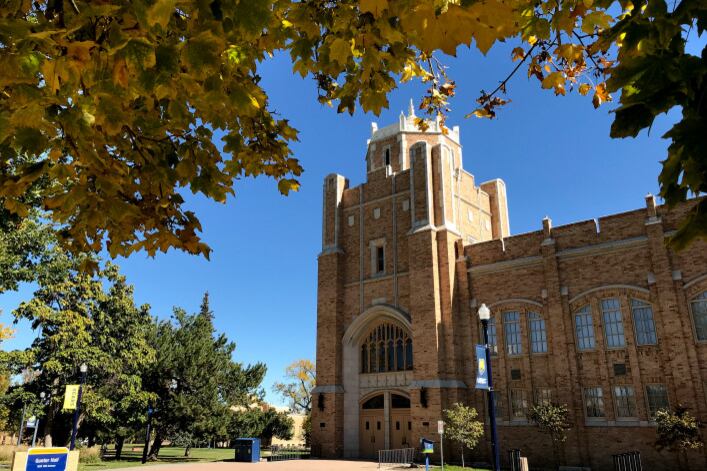Many Colorado colleges and universities are planning for a tentative return to some in-person classes, but there are still major questions about what fall semester will look like.
As the state eases stay-at-home restrictions, the Colorado Department of Higher Education recently issued guidelines that allow classes like welding and auto shop that have to be held in person to resume on a limited basis. But bringing thousands of students back to campus raises different concerns. Administrators are reconsidering everything from where classes are held to where students will live, and many schools could end up with hybrid approaches to instruction.
All of these scenarios could change with public health guidelines, stay-at-home orders, and potential advances in testing availability. Schools haven’t made a firm decision on how to handle the fall semester, but they’re looking for ways to bring as many students back to campus as possible within health guidelines.
Major matters. Schools aren’t sure if they’ll be able to revert all courses back to in-person instruction, but they want to prioritize graduation requirements in the performance arts, visual arts, and science lab classes that don’t convert well online.
In this case, size matters. At Colorado College, the largest classes cap around 25 students, which could help the school find space to distance students and faculty in classrooms, Provost Alan Townsend said. Larger schools like the Metropolitan State University of Denver are considering block scheduling and larger spaces like the athletic center or a local basketball arena to hold classes, Vice President of Administration and Finance Larry Sampler said.
Summer may serve as a pilot. Colorado State is holding summer courses online. But the summer term may allow some people to return to campus for face-to-face instruction and research to begin implementing social distancing guidelines on campus. MSU Denver also hopes the second half of its summer term can be used to bring students in for major requirement courses that would be difficult to hold online.
Beyond just whether or not in-person classes will resume, the schools are looking into a variety of factors and potential challenges they’ll need to work out before the fall term starts.
Where will students stay? The University of Northern Colorado is considering moving all students into single rooms, and officials feel they have the housing capacity to do so. If need be, Colorado College may find additional temporary space to house students in ways that comply with social distancing.
For MSU Denver, where every student commutes, there’s still concern that students will put themselves at risk each time they use public transit, but there’s not enough parking space if everyone could drive.
How will people on campus be tested? This depends greatly on testing and resource availability and schools’ budgets. Colorado College is talking with a local children’s hospital and public health officials for guidance and projections on how to get those resources. UNC is considering testing, temperature checks, and contact tracing.
But MSU Denver won’t be able to purchase forehead thermometers, and instead plans to use forms meant to gauge potential symptoms that people will have to answer before entering a building.
What about those who need other accommodations? Schools are beginning conversations to help faculty and students in higher-risk groups or who don’t want to leave home continue their education. Nate Haas, a public relations director at University of Northern Colorado, says the school is confident the transition to online courses will help them meet student and faculty needs in the fall.
In some cases, Colorado College said, students could have to meet in person for a class, while a faculty member calls into the classroom. MSU Denver officials have wondered if they would need to bring in or train new faculty in cases where a class needs to be taught in person, such as a lab course, but a professor or staff member is in a high-risk category or doesn’t feel safe teaching in person.
Open Campus, a Chalkbeat partner, is a nonprofit news organization focused on higher education.





